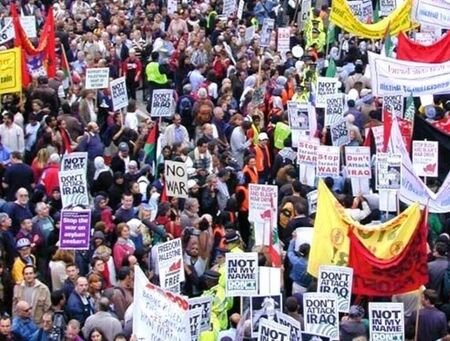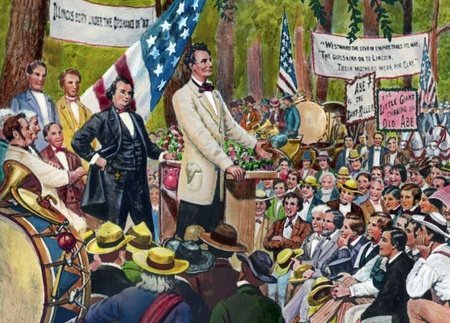
How Democracy Fails
Last updated: Tuesday April 23rd, 2024
Report this blog

CARING
Activity as the Basis of Democratic Systems
AMID the clamour and complexities of politics, we often forget that government only has one simple purpose: to protect the public. This is indisputable—everyone, save for anarchists, agrees that the nation must have security, social welfare and stability enforced by a central authority. What is disputable is the ideal form of central authority to safeguard these values, but it should not be so, as only one government structure is built on the public’s needs and interests—the only one with “people” (“demos”) in its name: democracy.
* Democracy is not only widely recognised as the sole legitimate form of government, it is mandated by the Universal Declaration of Human Rights (UDHR) in Article 21: “The will of the people shall be the basis of the authority of government”. The bedrock right to popular sovereignty—having the government in touch with the people—is acknowledged by all but appreciated by some; the right to political participation—having the people in touch with the government—is acknowledged by some and appreciated by few.
* The same article of the UDHR asserts that: “Everyone has the right to take part in the government of his country”, which arguably ought to be reworded to: “Everyone must take part in the government of his country”. With every constitutional right, there is a duty to defend that right; otherwise, who will uphold our freedoms? Should we trust government to be the public’s concierge whilst its subjects languidly expect all the services to be provided? The crude reality is that government giveth democracy … and government taketh democracy away!
* The basis of democracy lies in the people, not politicians—politicians are far from a crystalline mirror of the public’s needs and interests. Constitutions lay the groundwork for democratic principles, and everyone is duty-bound to protect them; the politician takes an oath, and the public takes action. Without an active populace—a mob of guard dogs prepared to pounce on convicts—corrupt, crooked politicians are allowed to warp democratic values on a whim. Regrettably, the modern Western populace is passive, with few willing to “pounce on” such brazen neglect of the public’s needs and interests, epitomised by the British public's unwillingness to protest the Cash for Questions corruption scandal, in which many Members of Parliaments bribed their way to political influence. This produced no notable resistance, save for some indignant comments on gazettes.
* History has proven that activity is the sole means conducive to a faithfully democratic administration, such as in the Dreyfus Affair: the Jewish captain Alfred Dreyfus—charged with treason solely because of his religious identity—was only exonerated after public outrage at the government’s objection to prevent the miscarriage of justice. We hanker for a solution to the flailing of democracy under modern politicians whilst sitting on it; we constantly complain about being unrepresented whilst refusing to take action. Petty plaints vanish as the speakers close their mouth; activity, in the form of protests, organised political discussions and membership in pressure groups, leaves an indelible mark on the community’s perception of government and keeps politicians on their toes.
* Democracy integrates the vox populi into politics, yet its effectiveness hangs on the unsurety of citizens voicing their concerns to politicians. Without the “demos” in a social contract with the government, democratic systems degenerated into authoritarianism and corruption, perceived among passive populaces. Former United States President John F. Kennedy acknowledged individuals’ societal duty in forestalling government misconduct:
“In a democracy, every citizen […] 'holds office'; every one of us is in a position of responsibility; and, in the final analysis, the kind of government we get depends upon how we fulfil those responsibilities”.
As citizens of a democratic country, we must not neglect our role as the building blocks of a functional government that acknowledges our needs and interests. To safeguard the security, social welfare and stability we treasure yet undervalue, we must commence by caring.
Further Reading
SPECIFIC
- "Case Study – Cash for Questions" by Britpolitics
- Quotes from Profiles in Courage (1956) on The John F. Kennedy Presidential Library and Museum
- The Social Contract (1762) by Jean-Jacques Rousseau
- "Trial of the Century" (2009) by Adam Gopnik
- Universal Declaration of Human Rights (1948) by Eleanor Roosevelt, Pen-Chun Chang, et al.
OTHER ASSESSMENTS


Of course, I will talk about a very controversial topic, but is it possible to put up for discussion the question of whether a socialist republic is considered a democratic form of government in different worldviews? No, the answer, of course, is almost immediately clear, but it was very interesting to consider this from different points of view, since, surprisingly, even the USSR itself positioned itself as a democracy, and socialism as a "people's democracy", when Western countries, on the contrary, called the Cold War the struggle of Democracy against communism, that is, having This refers to the ideological antagonism of communism to democracy. Can you give an answer on this topic?